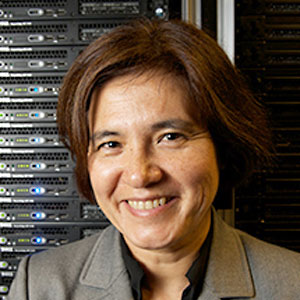Speaker Profile
M.D., MBA, Ph.D., Professor of Medicine and Founding Chair, Health System Department of Biomedical Informatics, University of California San Diego
Biography
Lucila Ohno-Machado, MD, MBA, PhD received her medical degree from the University of São Paulo and her doctoral degree in medical information sciences and computer science from Stanford. She is Associate Dean for Informatics and Technology, and the founding chair of the Health System Department of Biomedical Informatics at UCSD, where she leads a group of faculty with diverse backgrounds in medicine, nursing, informatics, and computer science. Prior to her current position, she was faculty at Brigham and Women’s Hospital, Harvard Medical School and at the MIT Division of Health Sciences and Technology. Dr. Ohno-Machado is an elected fellow of the American College of Medical Informatics, the American Institute for Medical and Biological Engineering, and the American Society for Clinical Investigation. She serves as editor-in-chief for the Journal of the American Medical Informatics Association since 2011. She directs the patient-centered Scalable National Network for Effectiveness Research funded by PCORI (and previously AHRQ), a clinical data research network with over 24 million patients and 14 health systems, as well as the NIH/BD2K-funded Data Discovery Index Consortium. She was one of the founders of UC-Research eXchange, a clinical data research network that connected the data warehouses of the five University of California medical centers. She was the director of the NIH-funded National Center for Biomedical Computing iDASH (integrating Data for Analysis, ‘anonymization,’ and Sharing) based at UCSD with collaborators in multiple institutions. iDASH funded collaborations involving study of consent for data and biospecimen sharing in underserved and under-represented populations.
Session Abstract – PMWC 2017 Silicon Valley
Session Synopsis: Widespread data sharing will radically accelerate precision medicine, making discovery and treatment more efficient. However, we must be mindful of the rights of patients to access their data and control its use and distribution. Respecting and enforcing these rights — including the right to privacy — will turn patients into partners and provide an incentive for even broader data sharing.




